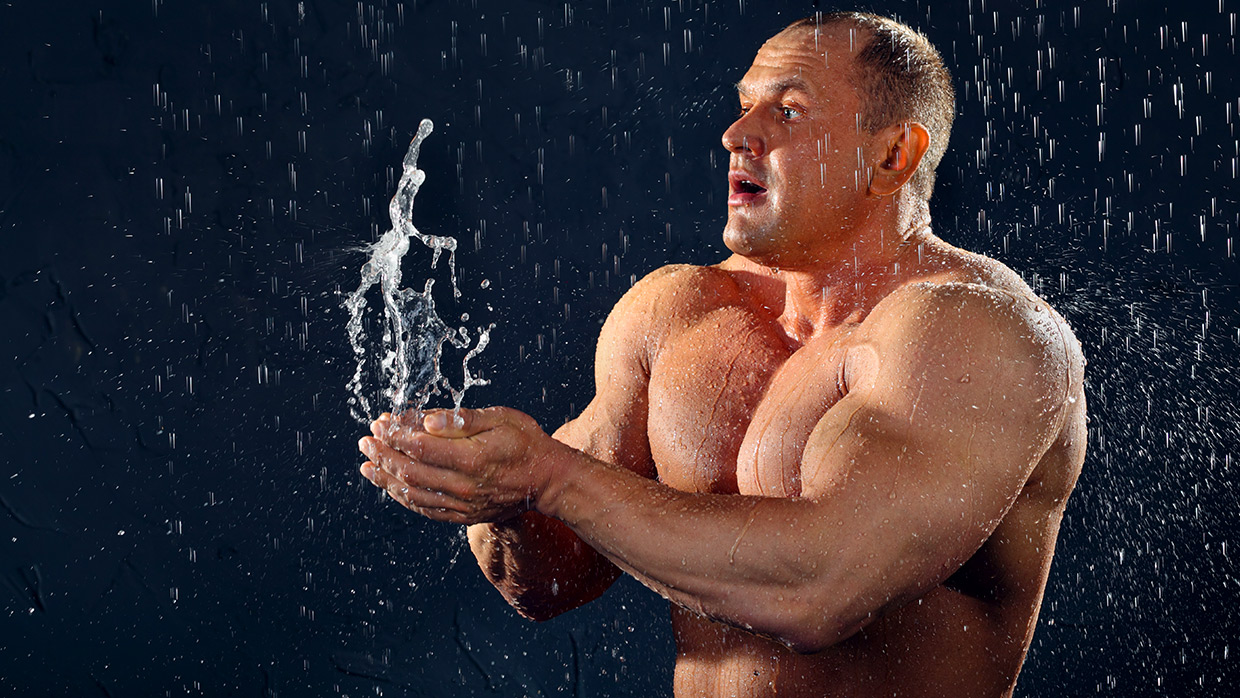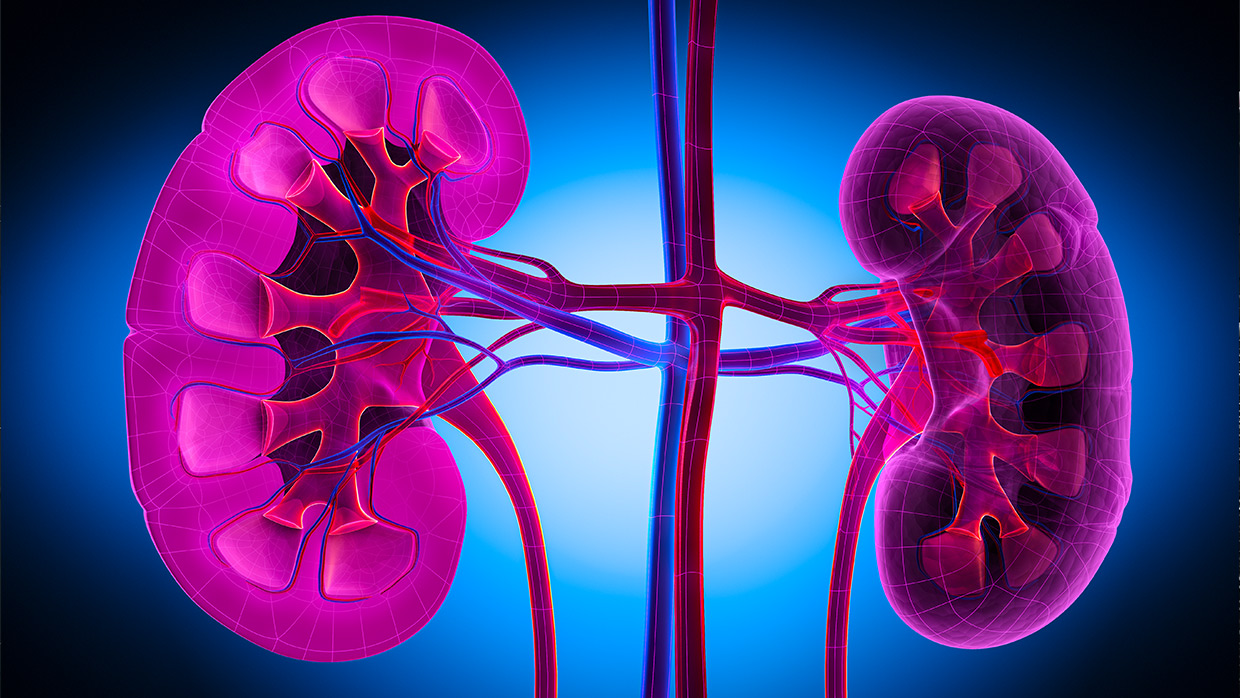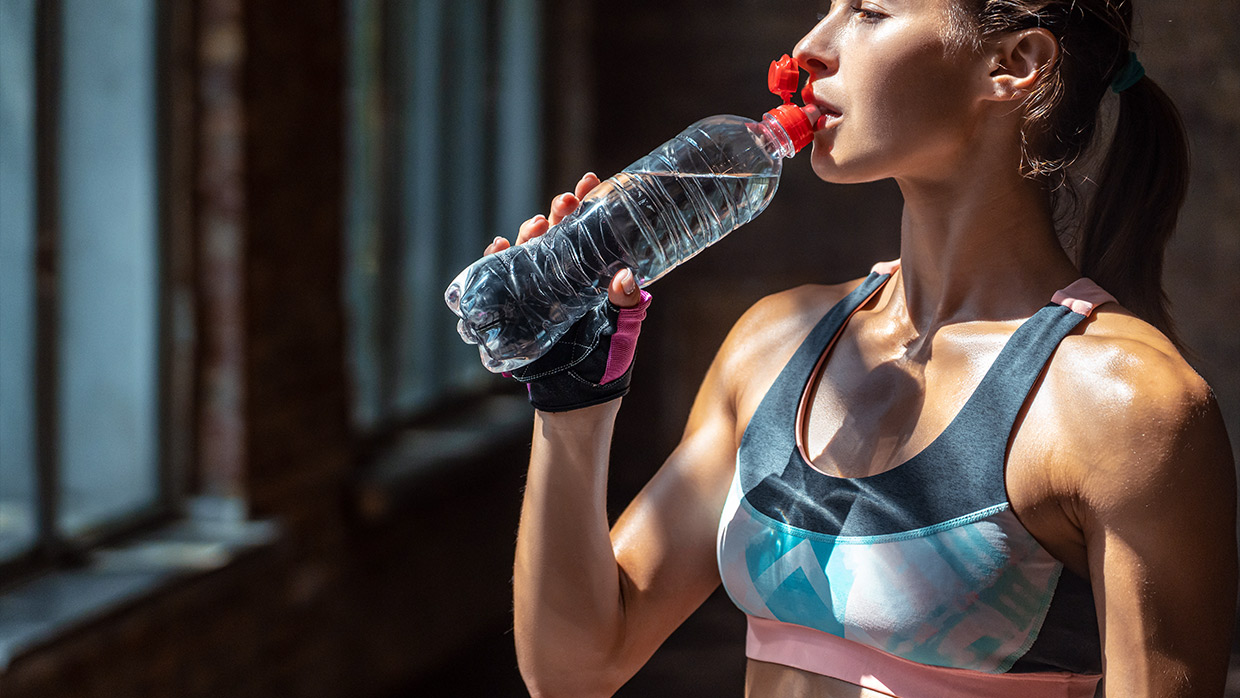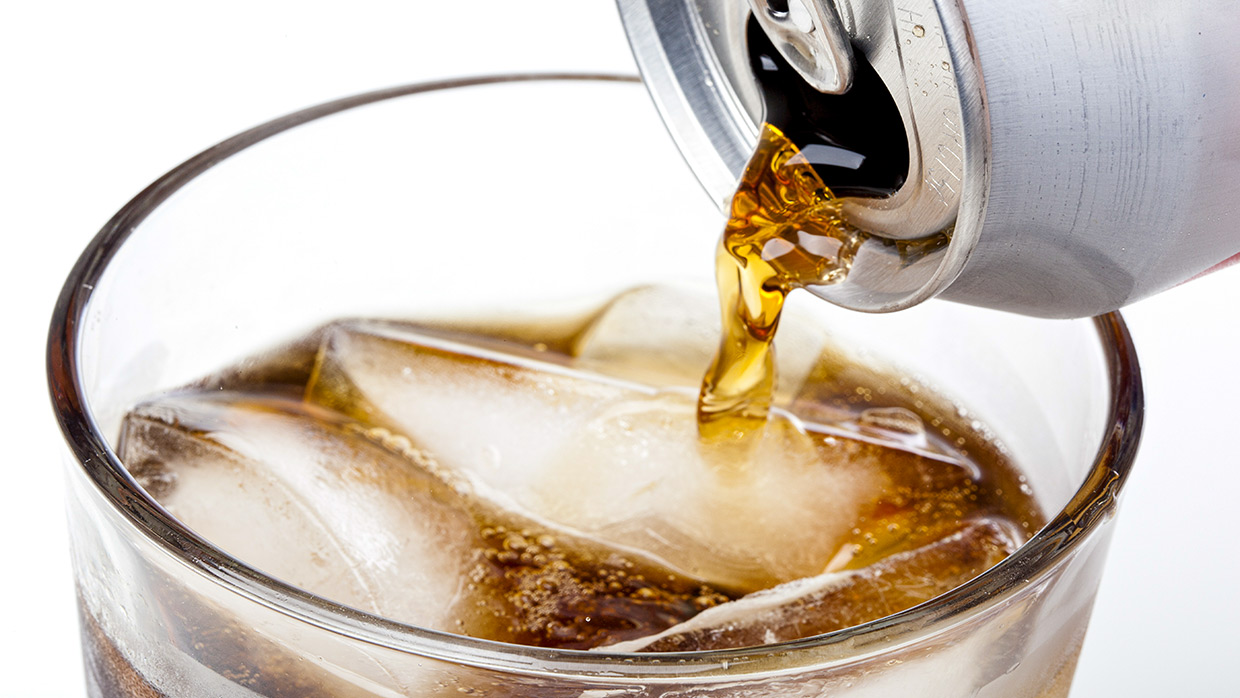The Truth About Hydration and Health
SOGGY-BOTTOM BODYBUILDINGThe prevailing notion among bodybuilders, athletes, and regular health-conscious people is that the more water they drink, the healthier they'll be. The extra water will presumably give them more energy, clear their head, brighten their skin, and even coax extra growth out of their muscles.
To achieve this end, they'll drink more than 8 to 10 glasses of water a day, often carrying around jugs of water as if they were camel-less Bedouins traveling footless to a distant 7-Eleven.
Bodybuilders, however, are especially soggy, believing that additional water will confer all kinds of benefits, but frankly, their beliefs don't amount to a bucket of warm spit.
What Do They Think All that Extra Water Will Do?

There are lots of articles on bodybuilding websites purporting the benefits of drinking lots of water. If you printed them all out, you could cast them on the surface of the Caspian Sea (the largest freshwater lake in the world) and walk across it, dragging a super-long straw alongside you and sucking up all the water these delusional articles think you should drink.
The reasons they give for drinking all this extra water range from the ridiculous to the… well, slightly less ridiculous. One article (from a leading men's health website) listing the "top 10 reasons" you should drink extra water had, as the first item on the list, "water hydrates you." I kid you not. That's like saying you should breathe air because it oxygenates you. Geniuses.
Other reasons include that water "clears out toxins," "aids protein synthesis," and "gives you flexible joints."
But I won't waste your time listing other silly reasons. The truth is, you don't need extra water because you're an athlete, bodybuilder, or health-conscious person in general. Furthermore, there's no need to count glasses of water until you reach the mythical 8-glass-a-day hydration goalpost.
Why Are They Wrong?

To understand human water requirements, we need to say hello to the kidney: Hello, kidney. We often think of you only as a waste disposal organ, kind of like the filter on the gas line in your car. That's true, but you do so much more than that.
You're actually a sophisticated regulating device that keeps fluids and chemicals in a delicate balance. Lots of things can affect this balance, like external heat, exercise, food, and of course, water intake.
The kidneys contain millions of microscopic structures known as nephrons that constantly monitor and adjust these fluids and chemicals, reacting instantaneously to high or low levels of sodium, glucose, amino acids, calcium, and water.
If you exercise and sweat, the kidneys will sense that the blood is getting saltier (more concentrated) and compensate by absorbing more water from the urine and sending it into the blood. When the kidneys can't absorb any more water from the urine, it sends you a powerful signal to drink.
And the stuff that isn't needed? The by-products of metabolism? That's what makes up the urine that's sent to the bladder to be excreted.
Given that the kidneys are so adept at maintaining the status quo (homeostasis), additional water isn't needed. Sorry Tom Brady, you of the alleged 37 glasses of water a day, but drinking more water than you need doesn't improve the kidney's functioning at all.
So How Much Water Should We Drink?

The rationale for drinking 8 glasses of water comes from a study conducted by the National Academy of Sciences in 1945. Yeah, 1945. Back then, people also believed that asbestos was a great building material and that you could lose fat by strapping yourself into a vibrating belt machine.
The study actually recommended 10 glasses, but somehow the extra two glasses got lost in history, as did one of the main points of the study: "Most of this quantity is contained in prepared foods."
Anyhow, if you really want to get precise about water intake, the best research indicates that adult men require about 3 liters of water (about 3/4ths of a gallon) from a combination of fluid and foods a day. Women need about 2.2 liters.
This amount will vary based on activity levels and outside temperature, among other things, and drinking more than what's required won't confer any additional health or performance benefits. But measuring your intake like you measure the antibiotics needed to cure the clap is nonsensical.
Unless you're old and the ability of your kidneys to maintain homeostasis is as decrepit as the rest of you, thirst is your best indicator of your water requirements. Along with pale urine. (You might, however, want to consider drinking a glass of water as soon as you wake up for a very specific reason.)
As an interesting aside, "water intoxication" is often more of a problem than not drinking enough water. When you drink too much water, it throws sodium balance out of whack and can lead to confusion, seizure, and even death.
A study of runners in the Boston Marathon found that while no one died from dehydration as the clear cause, 13% of runners experienced some degree of water intoxication from drinking too much of it (Siegel, 2015).
Do Coffee and Tea Hydrate You?
For some reason, hydration purists got it into their soggy heads that water's the only thing that can safely quench thirst. Coffee and tea, however, are often avoided by these purists because they think it's going to paradoxically dehydrate them and leave them looking like a hollow-eyed smoked mackerel.It's somewhat understandable, though, because the caffeine contained in those drinks has diuretic properties. Plus, there's the near-universal dry mouth experience you get from tea and coffee. However, a relatively recent study showed that the diuretic effect of tea or coffee is negligible; that they work equally well as water in terms of hydration.
As evidence, researchers at the School of Sport and Exercise Sciences at the University of Birmingham divided 50 male coffee drinkers – all of whom routinely drank 3 to 6 cups of coffee per day – into two groups (Killer, 2014).
In separate three-day trials, each group drank either four 200ml cups of coffee or the same amount of water. The researchers found "no significant differences across a wide range of hematological and urinary markers of hydration status between trials."
As far as the "dry mouth" sensation coffee and tea elicit, it's because of the tannins they contain. Dr. Ali Webster of the International Food Information Council explains that tannins – which are compounds found in tea and coffee – bind to our saliva and create that "drying, astringent feeling." It's got nothing to do with true dehydration.
What About Sodas?

Caffeinated sodas, unlike coffee or tea, often contain sugar, carbonation, and sodium, which at first glance sounds like a wannabe hydrater's nightmare. We've already presumably done away with the objection to caffeine, so let's look at the other ingredients.
Sugar does slow hydration a bit. The body draws a bit of water away from other places to help digest the sugar, but the effect is minimal. Hell, it hasn't kept the Gatorade company scoundrels, with their sugar-laden product, from proclaiming their drink to be the best hydrating drink in the world.
As far as carbonation, there's no evidence to suggest that it does anything to affect hydration rates. That leaves sodium, but that often causes the body to retain water rather than eliminate it.
Should Anyone Monitor Their Water Intake?
Old people are the only ones who should consider carrying around a gallon jug of water, maybe hooking it up by the handle to their portable oxygen tanks. Oh, and people with kidney stones or the potential to develop kidney stones – they might also consider lugging around some water.Everybody else should just let their sense of thirst dictate their need for water.
References
- Killer SC et al. No evidence of dehydration with moderate daily coffee intake: a counterbalanced cross-over study in a free-living population. PLoS One. 2014 Jan 9;9(1):e84154. PubMed.
- Siegel AJ. Fatal water intoxication and cardiac arrest in runners during marathons: prevention and treatment based on validated clinical paradigms. Am J Med. 2015 Oct;128(10):1070-5. PubMed.
